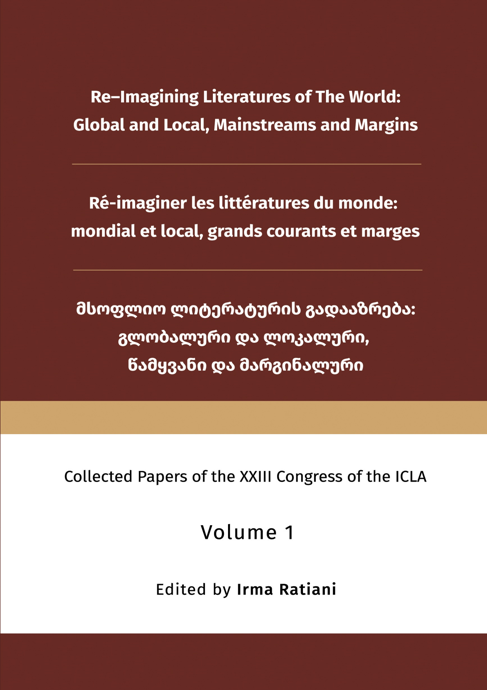In Search of a Sky to Protect the Earth: Houellebecq’s Political Aesthetics Considering Sérotonine
Main Article Content
ანოტაცია
As an agronomic engineer, it is one of Michel Houellebecq’s personal endeavors to protect the environment and foster local and sustainable agriculture. It is therefore no surprise that he stresses the personal and economic disasters of industrial production in nearly all of his novels. Through the example of Serotonin (2019), this article will show how Houellebecq proceeds aesthetically through the staging of his characters to defend the cause of the farmers. On the one hand, there is the voice of Aymeric d’Harcourt-Olonde, depicted as a lovely, loyal, and moral friend and a coura-geous hero with deep historic roots and agricultural ideals, and Camille, Florent’s biggest love, shocked by animal husbandry. Both are complementary and embody a premodern state of civilization: medieval times and the 19th century. On the other hand, there is the narrator, Florent, who is uprooted, works for the state economy, and embodies industrial production based on profit. There are two parallel plots by which Houellebecq tries to explain our contem-porary decadence: the betrayal of the religion (Camille) and the attempt to get her back during the whole novel, and the decline of the medieval culture as our common roots (Aymeric), which ends in suicide. Through these characters, who are de facto incarnations, the whole parable of serotonin aims at depicting the relationship between the state and religion through time and its economic and human fallouts. By retracing the sacrifice and tragic fate of the medieval stage of civilization, its pre-industrial mode of production, and Christian culture, Houellebecq aims to arouse awareness among his readers of the necessity of transcendence, which, according to him, can only lead to a fair economic production. Until the very end, Houellebecq aimed at evangelizing the state economy to make it a more moral one (see also Anéantir, 2022) through his parables, which eventually could change society from within. The article will show how agricultural production remains a central aspect of Houellebecq’s whole poetics.
